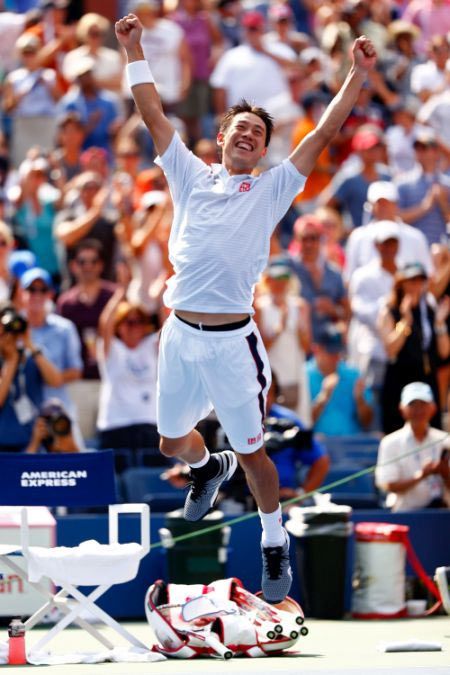
There comes a moment in all great sporting careers when the puzzle fits together and for Kei Nishikori it arrived on a sweltering early September afternoon in New York.
It was there that the young kohai (Japanese for protege) humbled the master, in this case Novak Djokovic.
Nishikori beat Roger Federer in Miami and had Rafa Nadal on the ropes in Madrid early in the season, but this was against the ruthless world number one in the U.S. Open semi-final, having just played back-to-back five-setters.
Undaunted, the 24-year-old showed Djokovic scant respect, rocking the Serb with the force and relentless warrior-like spirit of his play to claim a four-set victory.
In doing so he became the first Japanese man, and the first from an Asian country, to reach a grand slam singles final.
Croat Marin Cilic cut Nishikori down to size in the final but, providing the Japanese stays clear of the injuries that haunt all top athletes, there seems little doubt he will contest more Grand Slam finals.
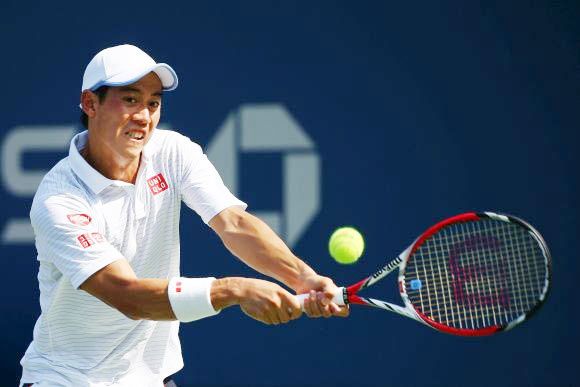
Japan has produced few male players to be taken seriously and until Nishikori, Shuzo Matsuoka had been their benchmark in the professional era, having reached 46th in the rankings.
Hence the reason a teenaged Nishikori was dubbed "Project 45" when he left the home comforts of Shimane for the endless drills and ball-chasing at Nick Bolletieri's Academy in Florida.
The project can now be classified a spectacular success even if there have been some doubts along the way.
Nishikori bettered Matsuoka's ranking in 2011 but spent the next three years hovering around the top 20 as the tennis fraternity watched on, waiting for his graduation.
Admired for his eye-catching, attacking shots, all that seemed to be missing was a touch of steel.
So last December he hired former French Open champion Michael Chang as coach and it proved a masterstroke.
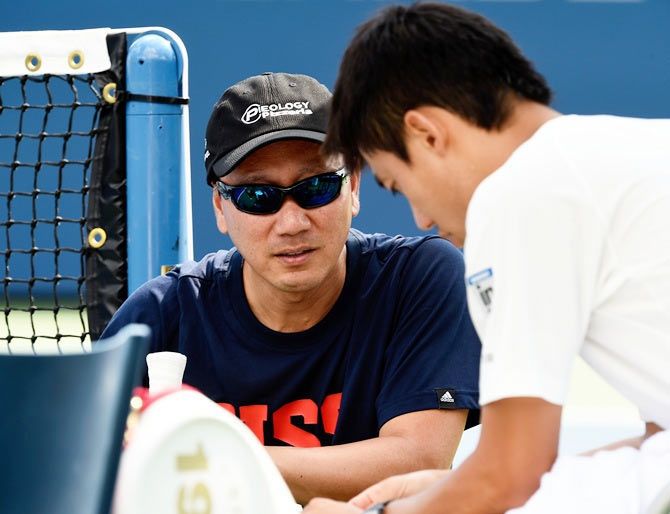
He began the year 17th in the ATP rankings and with three career titles to his name.
He ended it ranked number five, more than doubled his career title haul with silverware from Memphis, Barcelona, Kuala Lumpur and Tokyo, and qualified for the elite ATP World Tour Finals.
Nishikori's 11 wins this year against players in the top 10, including beating Andy Murray at the year-ender, was bettered only by Djokovic and Federer.
"My goal after last season was to get into the top 10 and make the semi-finals of a Grand Slam, but I surpassed them both," Nishikori told the Japan Times.
"I got stronger as the season wore on in the second half and, I have to admit, I'm surprised by the success I had this year."
With the fiercely competitive Chang in his team, there is little chance of Nishikori taking his eye off the ball once the news season kicks off in Asia in January.
Nishikori said the American had helped him push through barriers this year when in the past he may have shirked the challenge.
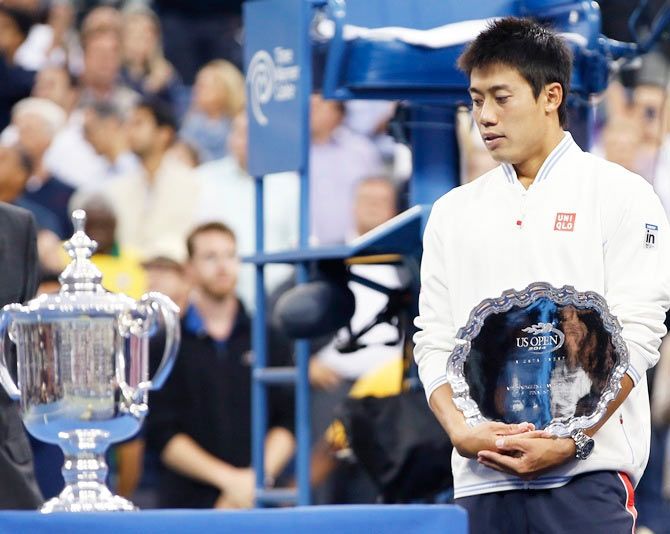
"It had only been a few weeks after surgery when I went to (the US Open)," Nishikori recalled.
"I was still feeling pain and I didn't want to risk it. I didn't want to go. But he told me a story from his career about getting to a Grand Slam semi when he had shoulder problems. So I went to New York and I ended up reaching the final.
"He constantly tells me to believe in myself."
With Chinese woman Li Na now retired, Nishikori will shoulder Asian hopes next year.
"The next goal is to win a grand slam but I know it’s not easy to go even to the semis or final, so it may take some time but hopefully I can reach a Grand Slam final again," he said.
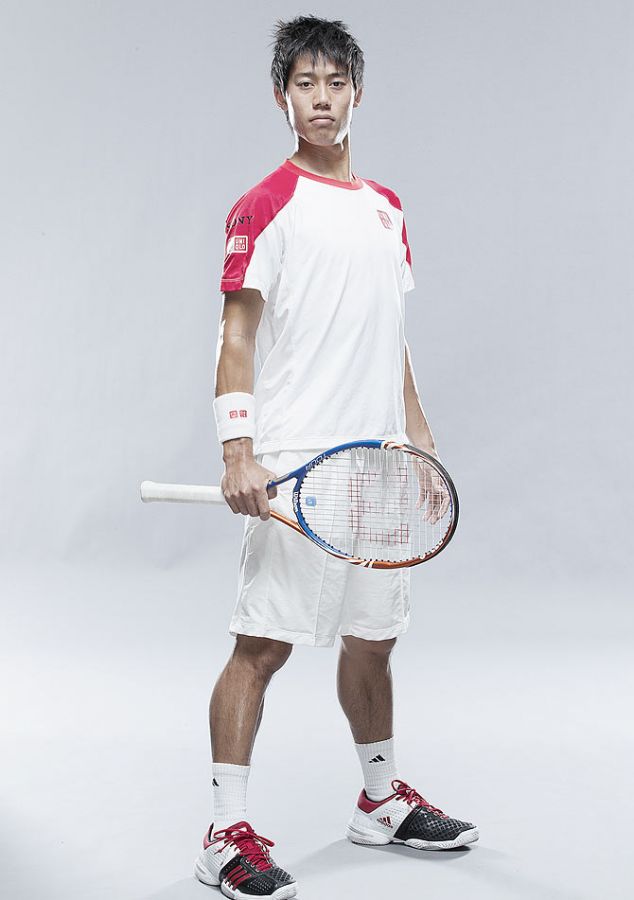
Kei Nishikori, breakthrough of the year
EARLY LIFE
Born: Shimane, Japan, Dec 29, 1989
Began playing tennis aged five
Moved to the US aged 14 to train at the Nick Bollettieri Academy in Florida. Funded by the Masaaki Morita (chief executive of Sony) Tennis Fund.
Turned pro in 2006, aged 16.
PROJECT 45
Shuzuo Matsuoka reached 46 in the ATP rankings in 1992, and Nishikori's early target was to better that and become Japan's highest-ranked male player.
In 2008 he won his first ATP Tour title (Delray Beach) as a qualifier, becoming the first Japanese man to win a title since Matsuoka in 1992.
Broke into world's top 100 in April, 2008.
Confirmed his potential by reaching U.S. Open fourth round in 2008.
In 2011, he soared to 30th in the rankings after reaching the semi-finals at Shanghai Masters 1000 -- becoming Japan's highest-ranked player on ATP rankings.
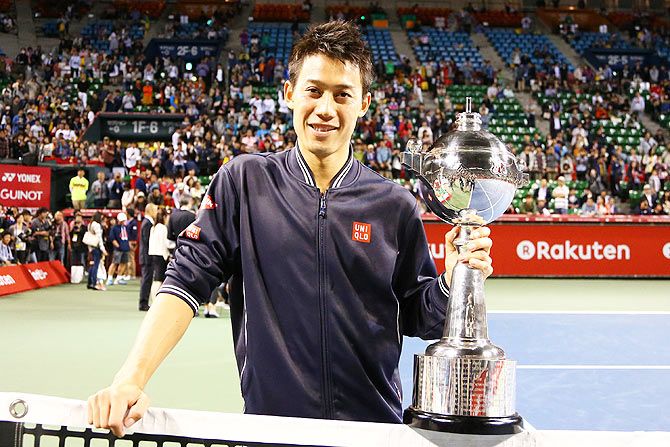
INJURIES
Progress was stalled when he suffered an elbow injury that sidelined him for a year. He returned to the top 100 in 2010.
Also suffered abdominal injuries in 2012.
THE REAL DEAL
In 2012 Nishikori became the first Japanese player to win the Tokyo title and ended the year at a career-high 19.
Reached his first grand slam quarter-final at the 2012 Australian Open.
His rise continued in 2013 when he climbed to 11th but cracking the top-10 remained just out of reach despite becoming the first Japanese man to reach Roland Garros quarter-finals since 1938.
2014 -- THE BIG BREAKTHROUGH
* Became first Asian player to reach the final of an ATP Masters 1000 tournament, finishing runner-up in Madrid to Rafa Nadal after retiring with a back injury.
* Broke top 10 by climbing to ninth in the world on May 12, equalling the highest ever ranking achieved by an Asian man (Thailand's Paradorn Srichaphan)
* Became first Asian man to reach a grand slam singles final at the U.S. Open, where he was beaten by Marin Cilic.
* His four ATP World Tour titles this season is the most by an Asian player. Achieved the highest ever ranking by an Asian man when he climbed to sixth in October.
* First Asian man to qualify for the elite ATP World Tour Finals, where he reached the semi-finals on his debut.
* Ended the year ranked five, earning $4.4 million.







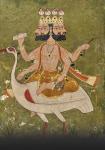



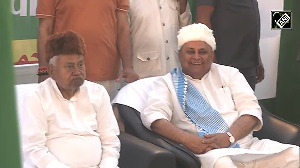

 © 2025
© 2025